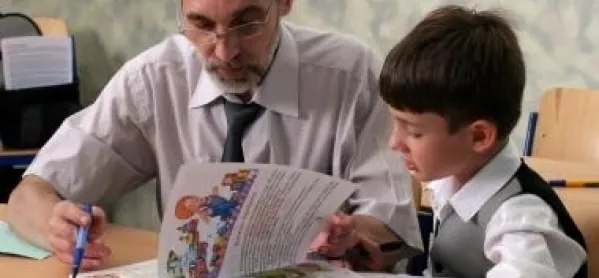Campaigners for synthetic phonics are criticising a national scheme to help struggling children read because it uses other approaches.
The Reading Reform Foundation said Reading Recovery was inconsistent with ministers’ decision to make phonics compulsory in primary schools.
Reading Recovery is an intervention scheme at the core of Every Child a Reader, the Government’s Pounds 144 million drive to boost literacy.
Campaigners in the foundation believe schools should teach only their approach, leading some to dub them “phonics phanatics”.
Reading Recovery teachers, who give pupils one-to-one half-hour sessions, are able to use other methods if they wish. These could include teaching pupils to read whole words, instead of piecing them together from their syllable sounds.
Debbie Hepplewhite, spokeswoman for the foundation, said: “The bottom line is that Reading Recovery teaches reading in one way, and we say something else. The Government has got contradictory methods.”
She said the use of phonics in the early primary years was now “remarkably better” because of Letters and Sounds, the Government’s phonics guidance.
“But it doesn’t go into junior school,” she said. “It is as if they think it is done and dusted, so don’t take into account older pupils who didn’t have the grounding in synthetic phonics.”
Jean Gross, director of the Every Child a Chance Trust, which is monitoring Every Child a Reader, said the two approaches to teaching reading could work in harmony.
“Reading Recovery has proved it can not only enable the hardest-to-teach children to catch up after just 40 hours of teaching, but - a year or 18 months later - to outperform the national average,” she said.
“Evidence from headteachers tells us that both systematic whole-class phonics teaching and a safety net of intensive extra help for some children are needed.
“A good class phonics programme reduces the numbers of children needing extra help, but there are still always children who need something more individual, an approach specifically tailored to their needs.”
The foundation invited Diane McGuinness, emeritus professor of psychology at South Florida University and outspoken critic of Reading Recovery, to speak at its conference last week.
Nick Gibb, the Conservatives’ schools spokesman, who has championed synthetic phonics, also spoke at the conference.
He told The TES he was concerned that some primary heads were still ideologically opposed to phonics and that schools could be using just the free Letters and Sounds guidance rather than buying more in-depth commercial programmes.
A PEACEFUL PLACE TO CULTIVATE BOOKWORMS
Taking books out of class will now be encouraged at Bordon Junior in Hampshire since it won a garden designed to promote reading.
The National Year of Reading garden, on display at the Hampton Court Palace Flower Show in the summer, has been moved to the school over the past three months.
The courtyard garden, which has a reading room, a bookworm track and a secret reading corner, was inspired by books such as The Very Hungry Caterpillar by Eric Carle and The Tale of Peter Rabbit by Beatrix Potter.
Some features, such as a deep “pool of knowledge”, have not been transferred. The garden’s designer, Sally Court, worked with the school to modify it, but most of its wooden structures, rocks and plants were moved bit by bit on lorries.
Jonathan Reilly, the school’s deputy head, said: “We really agreed with the ethos that everyone has a different place where they prefer to curl up and read. Places can be as inspiring as what you are reading.”
The school already has an eco-garden, where pupils grow vegetables, and a playground trim trail for developing balance, agility and co- ordination.
Mr Reilly said: “We want to involve the local community in the garden because there are 13 weeks of the year when the school is not open. We would also like to make links with libraries so they can use the garden as well.”




